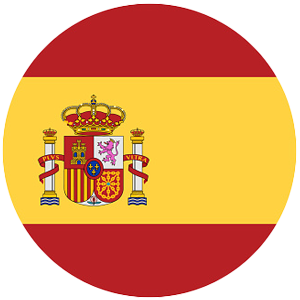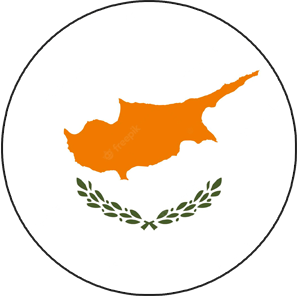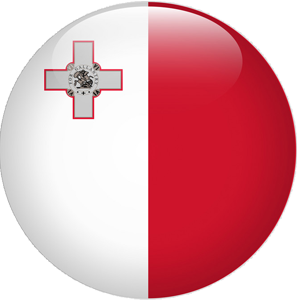- Study Languages
- Newsletter
- Talk with Counsellor
STUDY DESTINATION
-
 Study In UK
Study In UK
-
 Study In USA
Study In USA
-
 Study In Canada
Study In Canada
-
 Study In Australia
Study In Australia
-
 Study In Malaysia
Study In Malaysia
-
 Study In UAE
Study In UAE
-
 Study In France
Study In France
-
 Study In Germany
Study In Germany
-
 Study In Poland
Study In Poland
-
 Study In Hungary
Study In Hungary
-
 Study In Georgia
Study In Georgia
-
 Study In Spain
Study In Spain
-
 Study In New Zealand
Study In New Zealand
-
 Study In Netherlands
Study In Netherlands
-
 Study In Cyprus
Study In Cyprus
-
 Study In Italy
Study In Italy
-
 Study In Turkey
Study In Turkey
-
 Study In Malta
Study In Malta
-
 Study In Serbia
Study In Serbia
-
 Study In Russia
Study In Russia
Application Form

Study in Germany
Germany is considered one of the best European countries that provides international students with a unique combination of fantastic universities and high quality practical experiences and education. Furthermore, study in Germany has become a vital destination for international students and researchers in the Middle East in general and the gulf in specific.
Can I study in Germany for free? What are the most prominent universities in Germany? How can I apply for a student visa? How can I apply for a scholarship to study in Germany? Are there any training courses in the English language at German universities? What are the requirements I have to meet? In this article, you will find satisfying answers for all these questions and more.
Conditions for study and admission to German universities:
How can you apply for a German university?
- Make sure that you meet all the requirement conditions of the university you want to study in via contacting the international office of that university. You will need a higher education entry qualification or equivalent for admission.
- Check qualifications or conditions required for some countries outside the European Union.
Foreign students from countries outside the European Union may need to take a university entrance examination after attending a preparation course.
Even if you meet the admission conditions, you mostly won't be able to directly register. That's because the most popular degree courses in Germany usually have certain restrictions that you will have to go through a selection process based on these restrictions.
To avoid not being admitted due to the course restrictions, it’s better to apply for more than one German university at the same time. Admission at German universities depends on the average CGPA of high school. That's, the higher your grades are, the more likely you are admitted.
Registration at a German university:
Where to apply?
In Germany, there is an increasing demand on specific majors or specific study choices. Moreover, there are specific restrictions that will affect the way via which you apply for any German university in order to get a university certificate.
The majors following that kind of admission restrictions have national or local admission restrictions. For example:
- General Engineering.
- Medicine.
- Dentistry.
- Veterinary Medicine
Where to apply to get a degree with restrictions:
Students with an entrance qualification for a German university or any university in an EU country/ the European Economic Region can apply through “Trust for Admission to Higher Education.”
As for students who don't have an entrance qualification for a German university or students from non EU countries/ outside the European Economic Region can apply through “help_Uni” or directly to the university targeted.
Where to apply to get a degree with or without restrictions:
If you want to apply for any university to get a certificate with or without restrictions, it’s better to apply through “help_Uni” or directly contact the university targeted.
Language requirements to study in Germany:
Germany has a very limited number of majors that are fully-taught in the English language. However, there are some majors that are taught in both English and Deutsch languages, which is an amazing way to develop your skills in the Deutsch language while doing your bachelor degree.
Postgraduate students will find an increasing diversity in the levels of teaching the English language in Germany. There are two main tests of the Deutsch language are accepted by all German universities:
- DSH (the Deutsch language entrance exam) is only available in Germany.
- DAF Test: available I. At 90 German universities.
If the major you study is partially-taught in the English language, you have to apply for a certificate of Mastering English. Here is a list of the main popular English language tests that you might need to apply.
- IELTS Academic.
- TOEFL IBT test.
- PTA Academy.
Documents needed for study in Germany:
- A certified copy of the high school certificate.
- Translate courses and grades as well.
- A copy of passport.
- A proof of mastering the Deutsch language and/or English language.
- A letter of the purpose of study.
- Form or application fees.
- All the previously-mentioned documents must be certified by official authorities.
Why you are recommended to study in Germany:
- Low study fees or no study fees.
- Top ranked universities worldwide.
- Certified study programs.
- Affordable living expenses.
- Job opportunities for international students or researchers.
- Acquiring a new language.
- Cultural and historical diversity.
Study and living expenses in Germany:
Germany isn't that expensive if compared with other European countries. If you are willing to successfully study abroad, you need to estimate the expenses properly and make sure that you can afford them.
Study fees at private universities:
At German private universities, study fees may reach 26. 000 euros/year if you are an undergraduate student. If you are a postgraduate student, study fees may reach 40.000 euros/year.
Engineering, Business Administration and Management are the most expensive majors in Germany.
Study fees at the best German universities:
Here is a list of the average study fees for the top-class universities and colleges in Germany:
- Ludwig Maximilian University of Munich - average tuition fees. 258 EUR/year.
- Heidelberg University - average tuition fees 20,000 EUR/year.
- Technical University of Munich - Average Tuition fees 258 EUR/year.
- Humboldt University of Berlin - no tuition fees.
Living costs in Germany:
You can't only study in Germany for free, but it’s also an affordable country.
The average living expenses for students range from 700-1000 euros/month including the accommodation.
Big cities: Berlin, Frankfurt and Düsseldorf, the total living costs range from 900-1500 euros/month.
Small cities: Freiburg, Leipzig or Hannover, you will need 750-1100 euros/month.
Student housing costs in Germany:
When it comes to living in Germany, the housing issue will cost you the most. However, there are cheaper choices, such as: dormitories, sharing a rented flat or renting a one-room apartment.
The average expenses for student accommodation in Germany:
Living alone in a small apartment: 390 euros/month.
Sharing a rented apartment: 365 euros/month.
Dormitory: 250 euros/month.
According to DAAD, living in a room inside a dormitory is the most popular choice for international students. More than 40% of international students live in a dormitory.
Sharing a rented flat is the second most popular choice for international students. 30%of international students opt to take this choice.
The Top 10 Universities in Germany According to QS Ranking:
|
The University |
The University Assessment According to QS |
The University Ranking Worldwide |
|
Technical University of Munich |
76.4% |
49 |
|
Ludwig Maximilian-University of Munich |
70.4% |
59 |
|
Heidelberg University |
69% |
65 |
|
Free University of Berlin |
55.8% |
118 |
|
Humboldt University of Berlin |
54.1% |
131 |
|
Karlsruhe Institute of Technology ( KIT) |
51.9% |
141 |
|
RWTH Aachen University |
51.1% |
147 |
|
Technical University of Berlin |
49.3% |
158 |
|
Eberhard Karls University of Tübingen |
47.2% |
169 |
|
Albert Ludwig University in Freiburg |
45.2% |
189 |
Most important majors to study in Germany:
- Medicine and Dentistry.
- Law.
- Industrial Engineering.
- Engineering.
- Mathematics or Computer Science.
- Natural Sciences.
- Business and Economy.
- Architecture.
- Psychology.
- Geology.
The most prominent postgraduate majors to study in Germany:
- Master in International Business.
- Master in Finance or Investment.
- Master in Innovation Design Management.
- European Master's Program in Customer Relationship Marketing (Mercury).
- Master in Data Analytics and Information Systems Management.
- Master in Data Science, Artificial Intelligence and Digital Business.
- Master in Leadership Management.
- Master of Management in International Marketing.
- Master in Big Data Management.
- Master in Innovation and Entrepreneurship.
The most valuable Scholarships available for international students in Germany:
DAAD Scholarship Programs:
The German Academic Exchange Service is a joint organization of German higher education institutions responsible for reinforcing international academic relations. They concentrate on exchanging students, academics and researchers. They also focus on providing funds and scholarships for foreign students, postgraduate students and scholars in Germany.
The DAAD scholarship is awarded to students who wish to pursue a qualification in a full-time course of study. Applicants must have completed their Bachelor degree within no more than 6 years. Moreover, they must have at least 2 years of proven work experience.
Scholarship amount: 850 euros/month for MA students and 1200 euros/month for PhD students or researchers.
Heinrich Boll Foundation Scholarships in Germany:
Heinrich Boll Foundation awards about 1200 scholarships every year to undergraduate students, graduates and even ambitious postgraduate students of all majors and nationalities.
Those students must pursue their studies at German governmental universities or any accredited German university.
Scholarship receipts are expected to be saved in special academic records and be politically and socially shared. Students must demonstrate interest in values like: environment, sustainability, democracy, human rights, self-determination and justice.
Germany National Scholarship Program:
Deutschland stipendium provides financial support for academically ambitious and distinguished students all over the world. They support all students at all German participating universities regardless of their genders, personal incomes or parents’ incomes.
This scholarship is made possible due to the cooperation between the private sector and public sector. Companies, institutions or individuals provide students with a sum of 150 euros per month, while the federal government adds another 150 euros to that amount of money.
This scholarship is awarded by universities; therefore, students are expected to meet the conditions of each university.
Konrad Adenauer Foundation Scholarship in Germany for International Students:
Students who have academic achievements as well as great interest in politics are qualified to apply for the Konrad Adenauer Scholarship.
This scholarship aims at encouraging foreign students and PhD nominees who successfully completed their studies at their homes. This scholarship is also awarded to students who wish to complete their postgraduate studies.
The scholarship priorities PhD students from developing countries or politically unstable countries.
Erasmus Scholarship Programs in Germany:
Erasmus Scholarship is a wise choice for international students who aim at taking a part in a full-time course of study in Germany. As an EU-Wide scholarship funded by EU member states, Erasmus provides financial assistance for one year of exchange periods to international students at universities in Germany.
In order to get the scholarship to Germany, you must be enrolled in a higher education institution and your original university as well as the German university must have signed the Erasmus Charter for Higher Education.
Friedrich Ebert Foundation Scholarship:
The Friedrich Ebert Scholarship is another good choice that aims to boost social democracy through providing financial academic assistance. Furthermore, this scholarship is available for foreign applicants who work on their PhD studies in Germany at the State University of Applied Sciences.
These students are expected to have above average academic achievements. This scholarship is a good choice for those working in the areas of Social Sciences, Politics and Humanities.




